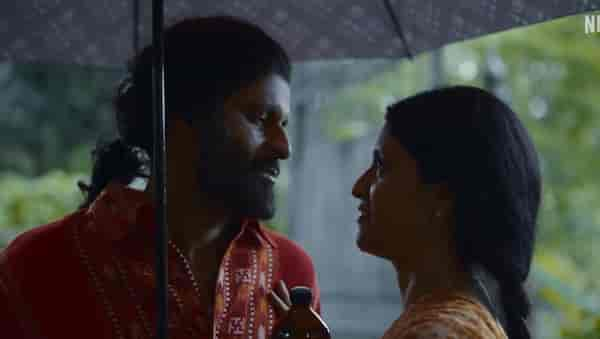Four times Killer Soup iconically drew upon the genre of absurdism to delve into deeper themes
Killer Soup released on Netflix on January 11 and has not stopped trending yet. Its absurd premise offers an incredible chance for the director to dive into deeper waters.

Last Updated: 05.32 PM, Jan 20, 2024
Killer Soup is Netflix’s answer to culinary misadventures and pent-up frustration. Directed by Abhishek Chaubey of Uddta Punjab and Ishqiya fame, the series provides an intriguing foray into the realms of black comedy and absurdism without running the risk of distraction from its main plot. Instead, the dark humour and absurdist elements make the world of killer soups and twin Manoj Bajpayees easier to relate to and get lost in.
Swathi’s affair with her husband’s lookalike in Killer Soup
In a world of disenchanted marriages and unrequited love, an underprivileged Swathi married into a very affluent family and never had to hear the end of it. From being mistreated by her own husband, Prabhakar, who does not hesitate to remind her of her menial origin each time she gives an opinion, to being ridiculed publicly by her affluent, drug-pin brother-in-law, Arvind. Trapped in an unhappy marriage, Swathi swallows her conscience and embarks on an illicit affair, with none other than her husband’s masseuse, who looks exactly like him, barring a squint eye.
The irony and absurdity of the affair with her husband’s lookalike are deeper than they seem. Swathi and Prabhu’s marriage was unhappy, while a newly disfigured Umesh never stops trying to please her, from putting acid on his face to willfully getting beaten time and again. He is deeply flawed, but a far better husband than Prabhu would be, as he lets her bloom and kill without being anything less than loving and apologetic. Killer Soup leisurely dangles the possibility of Umesh being another Prabhu in front of its viewers but does not go for it.
Thupalli’s foggy clue to Inspector Hassan
Abhishek Chaubey is exceptional at bringing absurdist and surrealist elements into this scene. Inspector Hassan is taking a hot, steaming shower when his soap slips and falls. Crouching and grabbing in the foggy heat, Hassan registers a change and scoops up mud and the torn scrap of Umesh and Swathi’s photo.
Thupalli’s ghost hints at the buried site they found with these belongings, with Hassan waking up at the site with the burned body dug up, sitting and posing. Hurled back to the police station, where he actually is, Hassan jolts awake and stares at his empty hand. The scene is iconic not only because of this surreal adventure with absurd elements but also for hinting at Hassan’s monologues with his own psyche and conscience, especially after his loyal and honest sidekick, Thupalli's, demise
Inspector Hassan actually listens to Thupalli but after his death
It is after Thupalli’s demise that Hassan starts seeing him everywhere, at random instances. But the irony and absurdity here begin with the fact that the first time he actually listened to his junior was after the latter’s demise. Nevertheless, Thupalli’s ghost does not misguide him but keeps pointing towards Swathi. From manipulating the recorder to play Swathi’s lies again and again to reciting poetic clues, Thupalli is nothing less than a Shakesperean ghost here, albeit with a spillage issue.
The absurdity? Swathi’s relief regarding Thupalli’s death is baseless, as the latter keeps causing problems for her, be it as a manifestation of Hassan’s consciousness or as a flesh and blood officer. Further, the irony and symbolism in Hassan actually listening to the overzealous Thupalli, but after his untimely demise as his own inner voice, needs no clarification.
An eye for an eye?
The play of ‘eye’ and ‘I’ is at the forefront of Killer Soup. Manoj Bajpayee’s Umesh has a squint or faulty eye after a cricket accident, while Prabhu has a limp along an overbearing ‘I’ or focus on the self. The latter has not lost much love for his wife or his son. As he is unable to get rid of this ‘I’ complex, life gets rid of him.
Now, to don Prabhu’s complicated yet privileged life, Umesh too must give up his ‘eye,’ the last bit of his identity with a capital ‘I’ in order to fit in. As Umesh is able to survive the ordeal, he is rewarded with a life with Swathi, for whom he can sacrifice everything. Also, the play on ‘eye’ is also synonymous with exacting vengeance- an eye for an eye. Prabhu dies and ensures he gets his pound of flesh, err, eye, before resting in peace.

 Premium
Premium